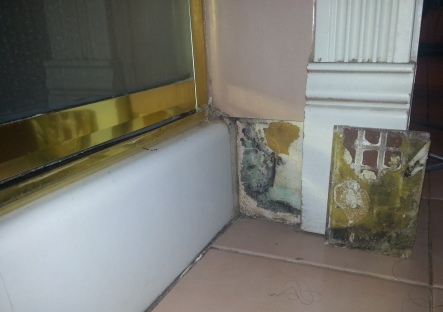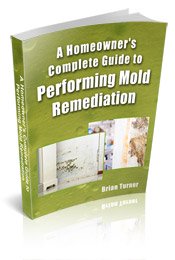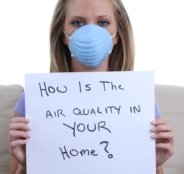Find a Mold Specialist Now
Click or Call, Toll-Free 24/7
Black Mold Sickness
Early detection is the best approach when dealing with black mold sickness; however it is common for black mold illness to go unnoticed because the symptoms are often similar to other health problems. If you are experiencing chronic health problems, it is possible that they are related to black mold.
Exposure to black mold can cause symptoms such as sinus infections, stuffy nose, asthma attacks, digestive problems, headaches, sneezing or coughing. In the beginning, these symptoms are often thought to be symptoms of the flu or a cold. But, concern starts to develop when the symptoms continue to linger for several weeks or months.
Serious Problems Related to Black Mold Illness
If the mold exposure is left untreated, these seemingly minor symptoms can begin to get worse and black mold poisoning may occur. Prolonged exposure to mold spores can result in dangerous or even fatal health problems. Some serious problems include: diarrhea, nausea, chronic fatigue syndrome, lupus, fertility problems, and even cancer.
Because these serious health problems can develop as a result of black mold sickness, it is essential to identify the source of the mold and clean up the mess as soon as possible. If you are experiencing any type of black mold illness symptoms, consult with a mold specialist immediately in order to identify the source of the mold problem within your home.
Treating the Symptoms
Medical treatments can be performed to lessen the severity of the black mold sickness that you are experiencing, however the symptoms will continue as long as you are exposed to mold. This exposure can occur even if you can’t visibly see the mold, because mold spores are microscopic and undetectable to the bare eye.
Mold usually grows in dark corners and small crevices within a building structure. For example, mold may begin to grow in the basement, or a damp corner somewhere within the house. A damp area only needs about 48 hours before the mold begins to grow, and then mold spores begin to spread throughout the home.
How Mold Exposure Happens
Black mold illness can occur as a result of even a small patch of mold, because the spores begin to move through the house. These spores can easily spread on clothing or other porous surfaces. Additionally, when the mold gets in the air is can be sucked into the ventilation system, resulting in the mold being spread everywhere.
The cross contamination of the mold spores can also affect your food, and ingestion is another source of black mold sickness. Eating food that has been contaminated with mold may cause all kinds of digestive problems and other forms of black mold illness.
The most severe types of black mold sickness can occur if your skin comes into direct contact with the source of the mold. If you see where the mold is growing, avoid touching the area with your bare skin. Instead, rubber gloves and other protective clothing should be worn during the cleanup process.
In the picture below there is black mold inside the wall from a leak in the shower door.
Cleaning Up Mold Problems
In order to prevent future sickness, it is important to thoroughly clean up the area and kill all of the mold spores. Additionally, the heating and air conditioning system may need to be cleaned because of the mold spores that are spreading through the air. If the job is completed only partially, it may result in spores being left in the home which can cause another mold growth problem in the future.
Consulting with a mold specialist is the best way to safely handle a black mold problem. Most mold remediation specialists offer free consultations and even if you want to handle the cleanup on your own, you can get some useful free advice. If you are experiencing symptoms of exposure to black mold, however, or have any health problems, we recommend having a professional handle the cleanup for you. Contact with black mold can make your symptoms worse and it’s not worth the risk. Click Here to find a list of black mold remediation specialists that offer free consultations in your area.
Once the cleaning process is complete, a professional can test your home in order to verify that the mold is no longer present. Click Here to find a list of professionals that can test your home for mold.
Return From Black Mold Sickness To Our Black Mold Poisoning Page
Black Mold Health Symptoms Home Page







